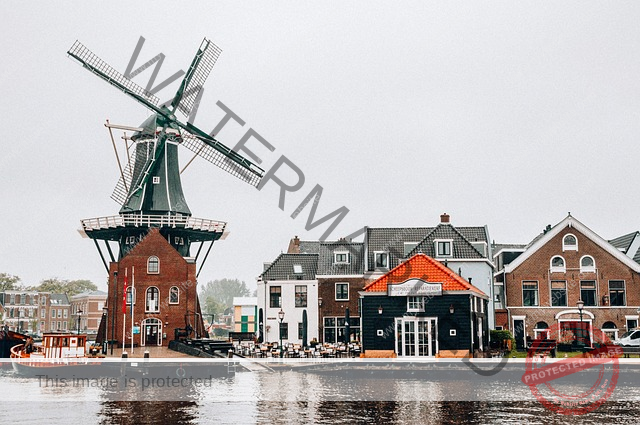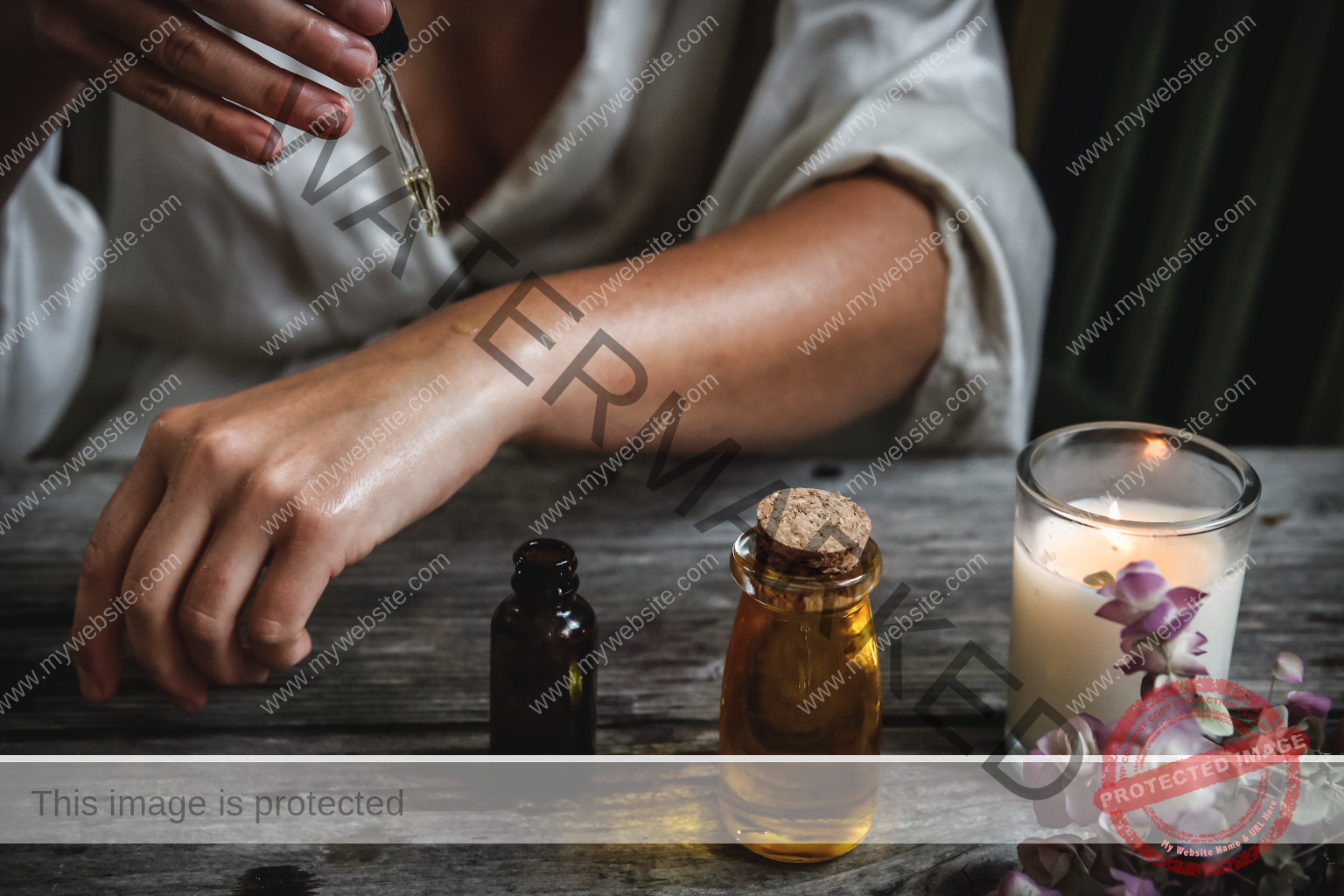
Exploring the Transformative Realm: Psilocybin Retreat Netherlands
22 May 2023
Psilocybin retreat Netherlands have emerged as a powerful avenue for individuals seeking profound self-discovery, healing, and personal growth. Among the countries at the forefront of embracing psychedelic experiences, the Netherlands has established itself as a haven for those interested in exploring the therapeutic potential of psilocybin through these legal psychedelic retreats in a safe space.
In this blog, we will embark on an enlightening journey through the world of psilocybin retreats in the Netherlands, shedding light on the importance of set and setting, the role of experienced professionals, the significance of preparation and integration, as well as the transformative dynamics of group experiences.

The Essence of a Psilocybin Retreat Netherlands
Embarking on a psilocybin retreat in the Netherlands offers individuals a remarkable opportunity for profound self-discovery, healing, and personal growth.
With a focus on the crucial aspects of appropriate set and setting, the guidance of experienced professionals, thorough preparation and integration, as well as the power of group dynamics, these retreats provide a safe and transformative container for exploration.
Legal Psychedelic Retreats
The Netherlands, renowned for its progressive laws and regulations surrounding psychedelic substances, has become a beacon for psilocybin retreats. The country’s forward-thinking approach allows for the legal psychedelic retreats and regulated use of psilocybin in specific contexts, including retreat settings.
This legal framework ensures that retreat centres operate with a strong emphasis on safety, professionalism, and ethical practices, providing participants with a secure and supportive environment for their journeys.



Set and Setting
Set
At the core of a successful psilocybin retreat lies the concept of set and setting. The “set” refers to an individual’s mindset, intentions, and emotional state before embarking on your psychedelic trip. It involves cultivating a mindset of openness, curiosity, and readiness to explore one’s inner landscape (Palmer & Maynard, 2022).
Rediness can be difficult and preparation is a key aspect of embarking on a psychedelic experience. Acceptance and surrender are common evoked in the context of the ideal mindset going into an experience.
Setting
The “setting” encompasses the physical environment in which the retreat takes place, including the retreat centre’s location, facilities, and ambiance (Palmer & Maynard, 2022). Many psilocybin retreats in the Netherlands are nestled in serene and natural surroundings, away from the hustle and bustle of everyday life. These natural settings provide a peaceful and harmonious backdrop for participants to delve deep into their experiences.
Another crucial aspect of the setting environment are the guides and facilitators of the experience as well as the music and lighting (Strickland et al., 2020). When embarking on a psychedelic journey it is very important to have experienced facilitators that are trained to guide these experiences. As they can be at times challenging, appropriate guidance can made the difference between a productive and beneficial experience, and one missing out on the potential transformative effects.

Guides and Retreat Team
Guidance from experienced professionals during a psilocybin ceremony is a cornerstone of psilocybin retreats in the Netherlands. These professionals, including therapists, facilitators, and retreat organisers, have extensive knowledge and expertise in the field of psychedelics and their therapeutic potential (Phelps, 2017).
They create a container of trust, compassion, support, and hold space, ensuring that participants feel safe and held throughout their mystical experiences.
Experienced facilitators play a crucial role in helping participants navigate the psychedelic experience, providing emotional support, facilitating introspection and self-reflection, and creating a safe environment for spiritual growth.


Preparation
Preparation is key to maximising the benefits of a psilocybin retreat in such a short time. A psychedelic retreat in the Netherlands provide comprehensive pre-retreat guidance and information to participants to explore their inner world.
This may include recommendations for mental and emotional preparation, such as mindfulness practices, journaling, and self-reflection exercises.
Physical well-being is also emphasised, with suggestions for adopting a healthy lifestyle and engaging in activities that promote overall wellness.
Wether for a first trip or for seasoned explorers setting intentions for the retreat is encouraged, as it helps participants focus their intentions and cultivate a sense of purpose for their psychedelic journey.
Mindfulness and Consciousness
In the context of psilocybin retreats in the Netherlands, embracing mindfulness and self-care is paramount for individuals to cultivate a nurturing and supportive environment for their inner exploration.
By incorporating mindfulness practices and prioritising self-care, participants can enhance the quality of their retreat experience and foster long-lasting benefits for any upcoming retreats.

Cultivating Mindfulness Practices
Mindfulness, the practice of non-judgmental awareness of the present moment, is a powerful tool for individuals embarking on a psilocybin retreat. It allows participants to cultivate a heightened sense of self-awareness, observe their thoughts and emotions without attachment, and develop a deeper connection with their spiritual experience.
By incorporating mindfulness techniques such as meditation, breath work, or body scans, participants can enhance their ability to navigate the psychedelic journey with greater clarity and equanimity.

Self-Care
Self-care plays a vital role in creating a supportive foundation for the retreat experience. Retreat participants are encouraged to prioritise their physical, emotional, and mental well-being.
This may include engaging in activities that promote consciousness, relaxation and stress reduction, such as taking walks in nature, practicing yoga or tai chi, or enjoying therapeutic massages.
Adequate rest, nourishing meals, and staying hydrated are essential for maintaining physical well-being. Emotionally, individuals are encouraged to express their feelings, engage in creative outlets, and practice self-compassion throughout the retreat.
Honouring the Journey of Self-Discovery
Embracing mindfulness and self-care during a psilocybin retreat involves honouring the journey of self-discovery with kindness, patience, acceptance, and surrender.
This includes being gentle with oneself during challenging moments, acknowledging and embracing all aspects of the experience, and fostering a mindset of curiosity and openness.
Self-reflection and introspection are encouraged as individuals navigate their inner landscape, allowing for deep insights, personal growth and life-changing experiences.


Integration
Integration is an integral after process of what is often an amazing experience during your retreat. After the profound insights of your psychedelic journey, integration ensures that the transformative effects extend beyond the retreat itself and become integrated into everyday life (Cowley-Court et al., 2023).
The work often begins at home when you come into situations and evironments that trigger old habit patterns and maladaptive states. Integration is the process of recoding these patterns as they occur, putting into practice the insights and conscious mindfulness gained within your retreat.
Retreat centres in the Netherlands offer post-retreat support and resources, including integration circles, follow-up sessions, and recommendations for integration-focused therapists.
These resources provide a framework for participants to process their mystical experience, integrate the lessons learned, and implement positive changes in their lives after a psychedelic retreat.
The group dynamic is another crucial aspect of the retreat experience. Psilocybin retreats often include group sharings after the ceremony which allow each participant to recount their experience within a non-judgemental space. These sessions can be as powerful as the ceremony itself as they can mark the beginning of the integration process, be a catalyst for personal growth, and kindle deep interpersonal connections.
Group activities, bonding exercises, and shared meals foster a sense of community and connection. The group setting also provides a mirror for self-reflection, allowing participants to gain different perspectives and learn from the experiences of others.
Building Connections Beyond the Retreat
After returning from a psilocybin retreat, participants often find themselves seeking connections with like-minded individuals who understand and appreciate their unique journey.
Building connections beyond the retreat allows individuals to share their experiences, exchange insights, and offer support to one another. This network of peers can provide a sense of belonging and understanding that facilitates ongoing integration.

Online Communities and Integration Resources
The digital age has provided a valuable platform for individuals to connect and share experiences in online communities focused on psychedelic exploration and integration.
These communities offer forums, discussion boards, and social media groups where participants can ask questions, seek guidance, and engage in meaningful conversations with others who have gone through similar experiences.
Additionally, numerous integration resources such as podcasts, articles, and webinars are available online, providing valuable information and perspectives to support the integration process.

Continued Support for Long-Term Integration
While the immediate post-retreat period is crucial for integration, long-term support is equally important.
Many retreat centres in the Netherlands offer follow-up programs, integration circles, and extended support services to help individuals maintain and deepen their integration process.
These resources may include regular check-ins with facilitators or therapists, group meetings, or individual integration sessions.
Continued support ensures that the insights gained during the retreat are gradually integrated into everyday life, allowing for sustained growth and transformation.
Harnessing the Power of Peer Support
Peer support plays a significant role in the integration journey. Engaging with individuals who have undergone similar experiences provides validation, empathy, and guidance. Sharing challenges, successes, and personal insights in a safe and non-judgmental space fosters a sense of connection and solidarity.
Peer support can take various forms, including participation in integration-focused group therapy, attending integration circles or workshops, or even informal gatherings where individuals share their experiences and provide mutual support.
By actively seeking out and participating in a supportive network, individuals can enhance their integration process and facilitate lasting growth.
The collective wisdom, shared experiences, and empathetic understanding of others on a similar path can provide invaluable guidance and companionship as individuals navigate the complexities and challenges of integrating their psychedelic experiences into their daily lives.


Conclusion
Psilocybin retreats in the Netherlands offer a unique opportunity for individuals seeking profound self-discovery, healing, and personal growth. With a strong emphasis on appropriate set and setting, the guidance of experienced professionals, thorough preparation and integration, and the transformative power of group dynamics, these retreats provide a safe and supportive space for inner exploration.
Choosing a psilocybin retreat in the Netherlands allows individuals to embark on a transformative journey that can lead to lasting positive changes and a deeper understanding of oneself.
Safety
Safety measures and ethical considerations are of utmost importance in psilocybin retreats. Retreat centres in the Netherlands prioritise participant safety through comprehensive screening and assessments.
This ensures that individuals with pre-existing medical or psychological conditions, such as anxiety or clinical depression that may be contraindicated for psilocybin use are identified and provided with appropriate guidance.
Dosage accuracy and substance purity are carefully monitored to ensure a safe and consistent experience for all participants.
Consent
Informed consent and autonomy are respected throughout the retreat process. Participants are fully informed about the nature of the psilocybin experience, its potential benefits, and possible risks.
Participants have the autonomy to make informed decisions about their participation and can choose to engage or abstain from certain activities during the retreat.
Retreat centres maintain strict confidentiality, creating a safe and private space for participants to explore their inner worlds without fear of judgment or disclosure.
Different retreat formats
Psilocybin retreats in the Netherlands offer a range of formats to cater to individual preferences and needs. Some retreats are designed for individuals seeking a more personalised experience, providing one-on-one guidance and support.
Others offer large or small group retreats, where participants can connect with like-minded individuals and share their psychedelic journey.
Retreat durations vary, ranging from shorter weekend retreats to longer intensive programs, allowing participants to choose an option that aligns with their availability and comfort level.
Additionally, specialised retreats may focus on specific themes such as trauma healing, creativity, or spiritual exploration, providing tailored experiences for those seeking a particular focus.
Healing with plant medicine
In the vast realm of personal exploration and transformation, psilocybin retreats in the Netherlands hold the potential to unlock profound insights and healing.
Through the appropriate set and setting, the expertise of experienced professionals, thorough preparation and integration practices, and the power of group dynamics, these retreats create a nurturing space for individuals to embark on their inner journey.
It is important, however, to approach these experiences with respect, caution, and a commitment to personal well-being.
Legal psychedelic retreat in a modern context
The Netherlands, with its progressive approach to psychedelics and its reputable retreat centres, stands as a beacon for individuals seeking a transformative experience through psilocybin.
With the guidance of experienced professionals, the support of a well-prepared set and setting, and a commitment to integration, these retreats can open doors to new perspectives, personal healing, and profound self-discovery.
Embarking on a psilocybin retreat in the Netherlands is an invitation to explore the depths of one’s being, to embrace the unknown, and to embark on a journey of self-transformation.
Through the power of psilocybin and the nurturing environment provided by retreat centres, individuals can unlock the potential within themselves and emerge with a greater sense of clarity, purpose, and connection to the world around them.
Bibliography
Aixalà, M. (2022). Psychedelic Integration. synergetic press.
Cowley-Court, T., Chenhall, R., Sarris, J. J., Carlos Bouso, J., Fernando Tófoli, L., Sátiro Opaleye, E., Schubert, V., & Perkins, D. (2023). Life after Ayahuasca: A Qualitative Analysis of the Psychedelic Integration Experiences of 1630 Ayahuasca Drinkers from a Global Survey. Natural Hallucinogens in Mental Health, 2(2), 201–221. https://doi.org/10.3390/psychoactives2020014
Eisner, B. (2002). Remembrances of LSD therapy past. https://erowid.org/culture/characters/eisner_betty/remembrances_lsd_therapy.pdf
Frymann, T., Whitney, S., Yaden, D. B., & Lipson, J. (2022). The Psychedelic Integration Scales: Tools for Measuring Psychedelic Integration Behaviors and Experiences. Frontiers in Psychology, 13. https://doi.org/10.3389/fpsyg.2022.863247
Johnstad, P. (2022). Entheogenic Spirituality: Characteristics of Spiritually Motivated Psychedelics Use. The International Journal for the Psychology of Religion, 1–17. https://doi.org/10.1080/10508619.2022.2148060
Kałużna, A., Schlosser, M., Gulliksen Craste, E., Stroud, J., & Cooke, J. (2022). Being no one, being One: The role of ego-dissolution and connectedness in the therapeutic effects of psychedelic experience. Journal of Psychedelic Studies, 6(2), 111–136. https://doi.org/10.1556/2054.2022.00199
Palmer, M., & Maynard, O. M. (2022). Are you tripping comfortably? Investigating the relationship between harm reduction and the psychedelic experience. Harm Reduction Journal, 19(1). https://doi.org/10.1186/s12954-022-00662-0
Phelps, J. (2017). Developing Guidelines and Competencies for the Training of Psychedelic Therapists. Journal of Humanistic Psychology, 57(5), 450–487. https://doi.org/10.1177/0022167817711304
Strickland, J. C., Garcia-Romeu, A., & Johnson, M. W. (2020). Set and Setting: A Randomized Study of Different Musical Genres in Supporting Psychedelic Therapy. ACS Pharmacology & Translational Science. https://doi.org/10.1021/acsptsci.0c00187
Tupper, K. W., Wood, E., Yensen, R., & Johnson, M. W. (2015). Psychedelic medicine: a re-emerging therapeutic paradigm. Canadian Medical Association Journal, 187(14), 1054–1059. https://doi.org/10.1503/cmaj.141124


